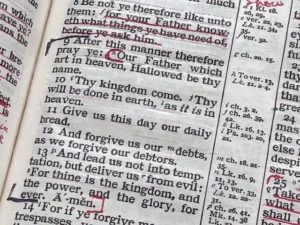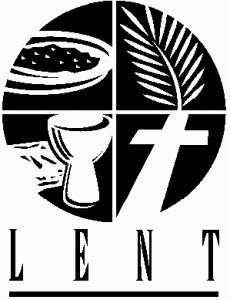Earthquakes, coup d’état, and plague convert citizens into refugees, and homeland into exile, as has happened last week in Haiti and Afghanistan. Against such painful backdrop, the People of God in Jesus Messiah have a song to sing that offers hope from a deeper and wider story. Consider how.
The ancient people of God experienced Exile as world-crushing and hope-ending. All God’s promises seemed dashed by their own persistent rebellion and disobedience. They had been warned and now they tasted the bitter fruit of their own undoing. We understand why they wouldn’t be in the mood to sing the songs made famous in their glorious Temple. We understand how galling it was to have their enemies demand mirthful celebration. We understand why they would cry out to the God who seemed to have rejected them. But in their anguish they lust for vengeance, crying out for blood. We can even understand that. But when vengeance leads them to long for babies to be smashed into the rocks and cites this as cause for happiness, we do not understand. Or perhaps we do, but we do not feel so good about that and wonder what place it has in the Bible that leads us to Jesus. Here’s a response.
In Exile—literal or not—you weep until there are no more tears; you scream at your oppressors; you vow never to forget; you swear to get even; and you fantasize the satisfaction of the oppressor’s suffering. This range of options sticks out like sore thumbs in the song of Lament God’s people sang in Babylon.
1 Beside the rivers of Babylon, we sat and wept as we thought of Jerusalem.
2 We put away our harps, hanging them on the branches of poplar trees.
3 For our captors demanded a song from us. Our tormentors insisted on a joyful hymn: “Sing us one of those songs of Jerusalem!”
4 But how can we sing the songs of the LORD while in a pagan land?
5 If I forget you, O Jerusalem, let my right hand forget how to play the harp.
6 May my tongue stick to the roof of my mouth if I fail to remember you, if I don’t make Jerusalem my greatest joy.
7 O LORD, remember what the Edomites did on the day the armies of Babylon captured Jerusalem. “Destroy it!” they yelled. “Level it to the ground!”
8 O Babylon, you will be destroyed. Happy is the one who pays you back for what you have done to us.
9 Happy is the one who takes your babies and smashes them against the rocks! (Ps. 137:1-9 NLT)
For Israel’s forebears in Exile, weeping came reflexively and convulsively. Their suffering and loss had seemed sudden, total, and irreparable. Persons most dear, places most revered, experiences most sacred—all vanished leaving nothing but pain. What were they to do? (Indeed, what are today’s displaced persons to do?) What are their options beyond the weeping? Or is there nothing beyond this weeping?
The captor-tormentors urge them to sing one the songs of Zion. Not because they loved music. Not because they loved Zion. No, they hated Zion and the people of Zion, and only wanted to drive their captives deeper into despair.
Their ill will did not escape notice. The faithful cranked their courage and stiffened their resolve. It would be unthinkable to sing the Lord’s song here! Not here and not now, and not for those people. In fact, it would be sacrilege to sing the Lord’s song here. We will remember the songs at the risk of everything, and dream of the day when we sing them there again, to the accompaniment of our captor’s wailing as they hear the dull thudding of our revenge visited on their little ones.
Today’s Holy Lands witness the same vengeful resolves of captors envisioning the torture of their tormentors. Today’s exiles follow ancient paths and thus chart new courses for future miseries. And, sadly, among them some of Zion’s daughters dwell.
But these are not the only ways possible. The tormentors taunted with insincere prompting to sing one of the songs of Zion, the city of the great King, the city of Yahweh-God. If it should be one of Yahweh’s songs sung, however it began—whether of lament, dirge, taunt, torment—eventually Yahweh’s song becomes a song of worship. For Yahweh’s song turns out to be the song of Another, the song of an altogether Other One, whose ways also are “other.” In time, the song of a Lamb.
If it is Yahweh’s song they sing, where is Yahweh Lord? Is it only somewhere else, where they no longer are? Or is Yahweh Lord there too, and everywhere?
If Yahweh is Lord there too … then can’t his song be sung? Even there? Wouldn’t the song be more about Yahweh than them or us, more about what the Lord has done and will do, or might do, than what the Lord didn’t do and hasn’t done? And if Yahweh is LORD, shouldn’t Yahweh’s song be sung anyway? Can a place or a people nullify this Lordship and prevent his songs from being sung and heard? If Yahweh is Lord, is any place irreparably profane? Any place where his songs would be out of place?
IMAGINE what could happen if exiles longing for “Zion” chose to sing the song of the Lord, especially the song of the Lamb, if they allowed their memories to expand to include all of the past to anticipate all the possibilities of the future, a future not just informed but transformed by the song.
IMAGINE the Lord reclaiming the place of highest joy, replacing memories of other places and times. Then … the Lord in power and sovereignty turns exile into “home,” so that some exiles remain as citizens, and then become ambassadors of another Place. Then … rivers of Babylon become streams of living water, tormentors demanding mirth from the Lord’s songs become curious inquirers when they hear such unnaturally joyful songs. Then … memories of atrocity become doors of awareness and the heinous in us all finds hope for a better way.
IMAGINE if enemies became friends, all lands became the Lord’s, and the most alluring songs sung were the Lord’s. Imagine if even Edomites became family, if no children anywhere were ever again smashed against rocks but were everywhere welcomed as kingdom-mentors of a Zion made new.

